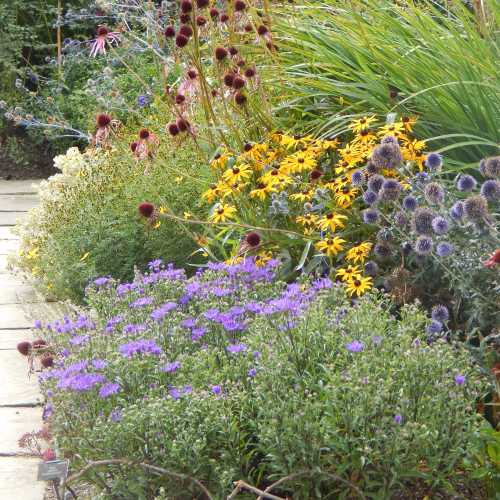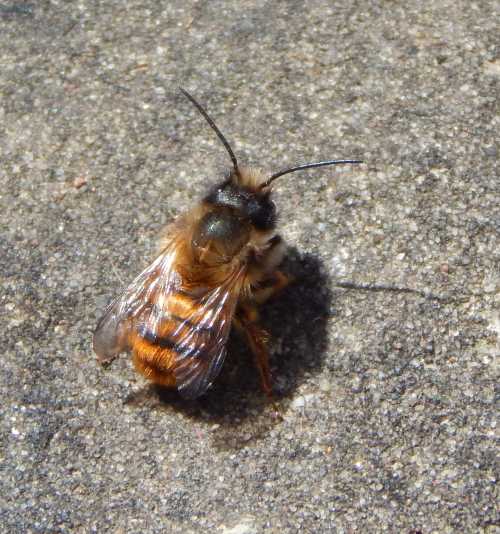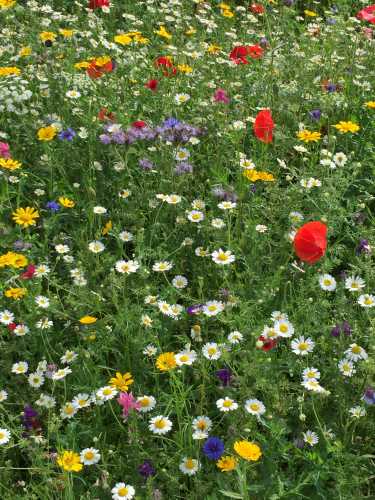Missing Bees: Why Are The Bees Disappearing?
Missing bees. It almost sounds like we misplaced something, and now we’re wondering where to find it. Unfortunately, this isn’t the case – bees are not simply in hiding somewhere, waiting for the right conditions to venture out.
Our bees have been disappearing for some time now: in the case of wild
bees, this has been gradual over the years, but we’re witnessing steeper
declines more recently (and extinctions) of some species.
However, the way this term 'missing bees' is used, can be confusing. There are a number of things going on here:
- honey bees disappearing from hives, or sudden colony collapse disorder - this is in my view, related to pesticide use.
- however, there is another issue: bee decline generally - in part, also down to pesticide use, but also habitat loss and other things.
How we can make a difference to bees
On an individual level, we can make a difference in our gardens. So.....to my first point....
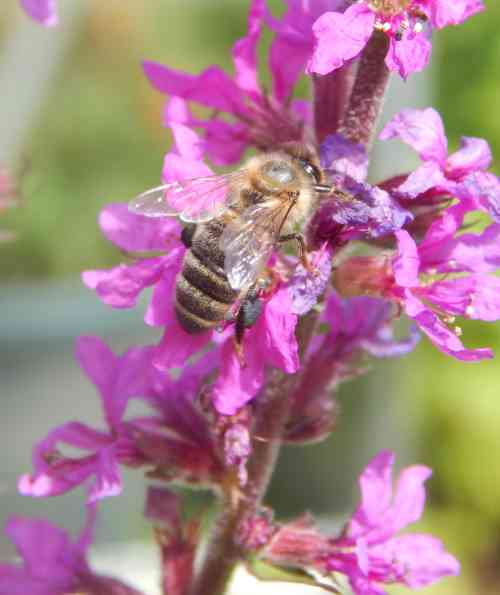
1. Let's Look At The Way We Garden
Let's look at what we’re planting and the chemicals we’re using if any. Over the years, I've watched various trends toward convenience land scaping - especially through hard-scaping, use of plants that have minimal benefit for pollinators, and sprayed with pesticides to keep 'weeds' away.
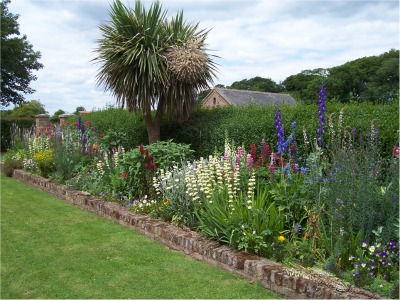
However, I'm hopeful that more people are becoming increasingly aware of the need to cut out the chemicals and plant flowers to help pollinators and other wildlife.
Even in small spaces and difficult conditions, there is generally something we can plant to help bees.
Find out more in my link (opens a new window) about how to create a bee garden.
2. Land Management Practice
There is much local councils can do to help pollinators - some initiatives would cost very little. And we ourselves can put pressure on our councils to do their bit. A strong Regional and/or National Pollinator strategy, would be a positive step and many of these ideas would reduce costs to tax payers or would require only tiny financial investment. I pulled together a proposal for a pollinator strategy here.
Fortunately, many farmers are helping out and doing their bit to serve pollinators. Below is such an example: this photograph does not do it justice, but I have seen the pollinator margin around this field several years in a row, at different times of the year. This generous pollinator strip, along with the surrounding hedgerows, shrubs and trees, are wonderful for wildlife, and very encouraging to see.
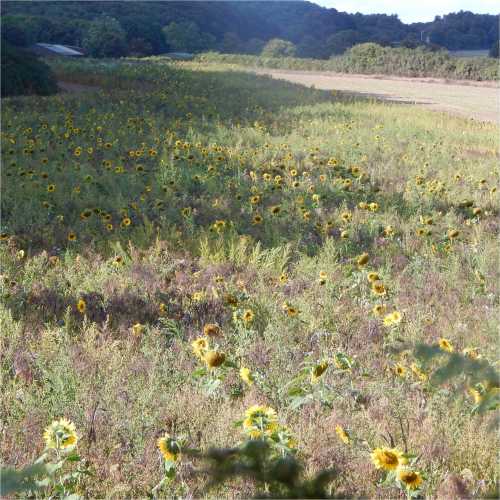 Now - what if all agricultural fields had a pollinator margin like this?
Now - what if all agricultural fields had a pollinator margin like this?
3. Cut The Pesticide Use
Pesticide use is of real concern, and especially particular kinds of pesticides harming beneficial insect life, which ultimately has a knock on effect all the way up the food chain. (Not to mention of course, the potential for wider pollution in terms of water contamination and the effect on aquatic life).
We're constantly told that farmers need to produce more food, and in order to do that, they need to use more insecticides. Farmers need independent information.
At the same time, the wealthy nations throw away tremendous amounts of food! I believe we need to rethink the way we manage our land and food supply, but this also means that the everyday person in the street needs to think about their choices of food, and they need to reduce wastage.
4. Habitat Enhancement
The fact is, huge amounts of natural wildflower habitat are and have been lost, due to farming practices, building development, urbanization - or even for the building of golf courses. When habitat is reduced and then becomes fragmented, this can accelerate bee declines, because it causes in-breeding. In-breeding causes all kinds of problems, such as in bumble bees, it can result in the producing of male bumble bees instead of female worker bumble bees.
Obviously, reduction of habitat means less food for bees and fewer nesting sites. We ourselves can help bees by including wildflowers in our gardens.
This is especially helpful for solitary bees, such as leafcutters and mason bees - you can watch videos of bees using my own bee houses by clicking on those links.
5. Think About How We View Honey
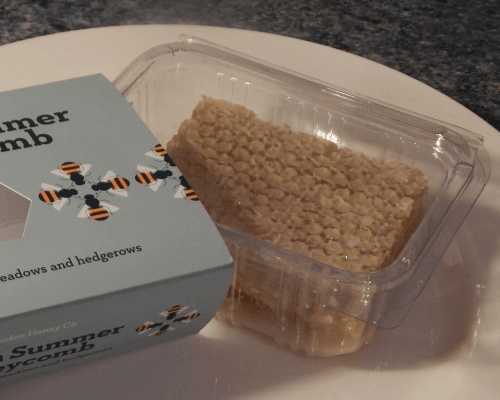
Personally, I think we need to think more
about our purchases, and that includes honey. The idea that honey could
be unethical barely crosses the minds of most people.
If we want to continue eating honey, nevertheless, we need to balance that with the needs of the bees and be more respectful of the way honey is made. Sadly, there have been reports of contaminated honey, or honey that is not really honey at all, but part sugar.
When fake or contaminated honey drives down the prices, beekeepers who are producing ethcially, are then undercut on price.
I think we need to stop expecting to buy honey cheaply, and pay attention to what we are buying.
6. Recognise The Importance Of Invertebrates
Whether it hops, crawls,
slithers, flies, walks, swims, runs, wriggles, invertebrates are vital for the health of the eco-system.
Why do we need to take action?
Bees because of the crucial role they play
in the eco system. They are considered to be one of the ‘canaries in the mine’.
When something bad is happening to our bees, we know there is a
serious problem in the environment that eventually will affect man.
Albert Einstein is said to have predicted that if bees left the earth, man would have 4 years to survive, but it's debatable that this is what he really said or meant.
However, E.O. Wilson definitely said this, because I heard the recording of his speech:
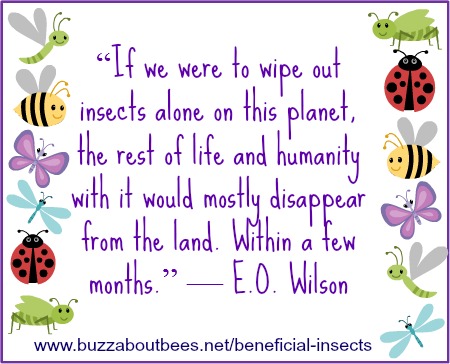
I tend to think we don't really know what the full consequences would be if we wipe out bees and other insects. However, today, it is believed that 1 in every 3 mouthfuls of food we eat in some way, is reliant on bees and other pollinators. It's probably safe to assume that the nock on effects for other species would be significant.
FREE PDF DOWNLOAD:
Planning And Planting A Bee Friendly Garden
Create a
lawn for bees

